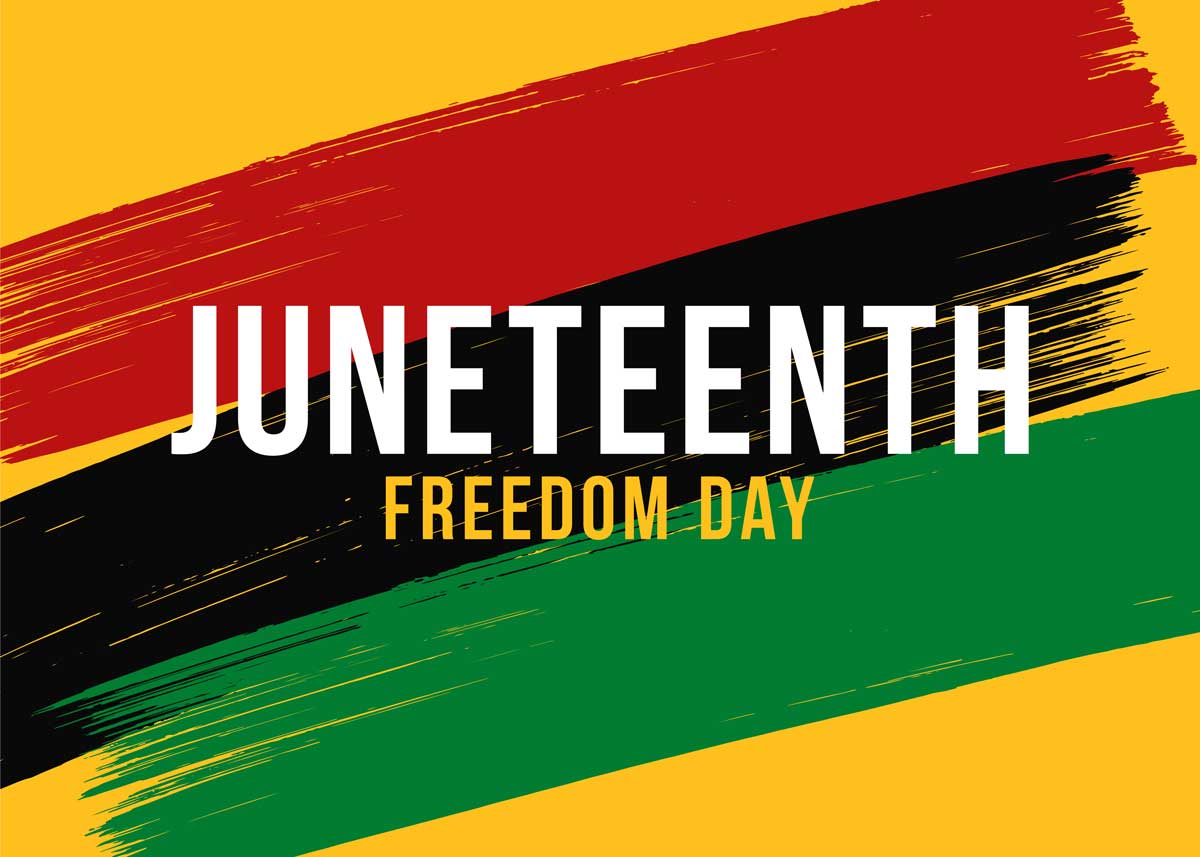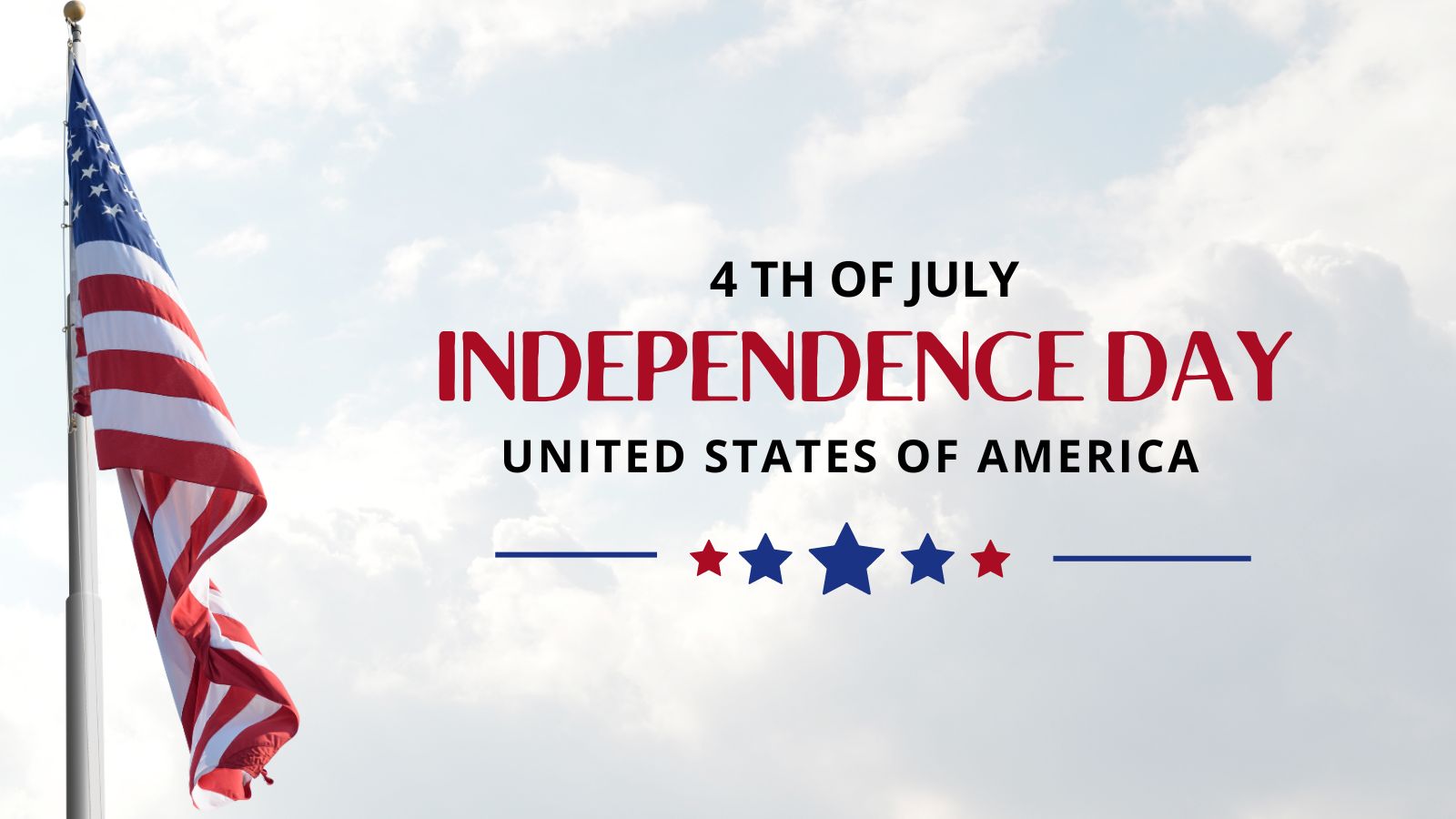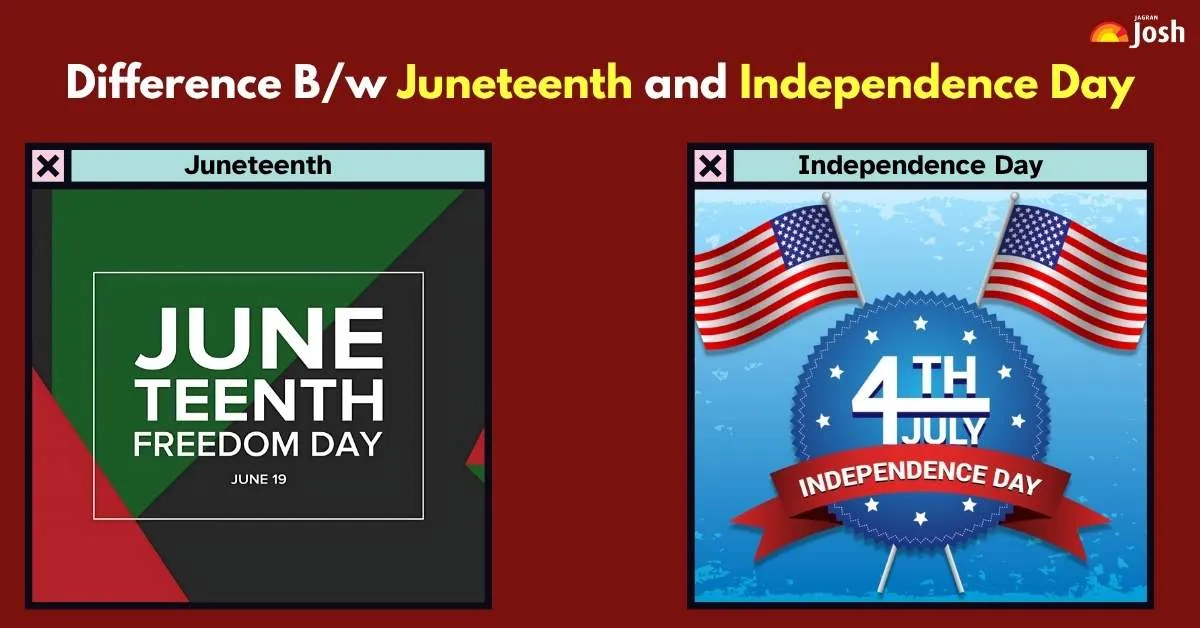Do you know that Juneteenth is officially known as the Juneteenth National Independence Day? This creates confusion in the minds of readers unfamiliar with American history. They can take it as the national independence day of America.
But there is a big difference between Juneteenth and Independence Day. Juneteenth is a federal holiday which is celebrated annually on June 19 to commemorate the ending of slavery in the United States.
In contrast, American Independence Day is a federal holiday celebrated on July 4. This date commemorates the ratification of the Declaration of Independence by the Second Continental Congress in 1776, which established the United States of America.
So, here you must have observed that both are linked with independence and are federal holidays. But what’s the difference between these two holidays? Let’s take a look!
What is Juneteenth? Check Date, History and Significance

Source: San Francisco AIDS Foundation
Juneteenth is a significant federal holiday in the United States, celebrated annually on June 19th.
Date:
Juneteenth is observed every year on June 19th. This year, in 2025, Juneteenth falls on Thursday, June 19th.
History:
-
The Emancipation Proclamation (January 1, 1863): President Abraham Lincoln issued the Emancipation Proclamation, declaring that all enslaved people in Confederate states in rebellion against the Union "shall be then, thenceforward, and forever free". However, this proclamation could not be enforced in areas still under Confederate control.
-
Arrival in Texas (June 19, 1865): Texas was the westernmost Confederate state and remained largely unaffected by the Emancipation Proclamation for over two years. Slavery continued there with little interruption.
-
On June 19, 1865, Union General Gordon Granger and his troops arrived in Galveston, Texas, and announced General Order No. 3, informing the more than 250,000 enslaved people in the state that they were free. This news came months after the Civil War had effectively ended with General Robert E. Lee's surrender in April 1865.
-
First Celebrations (1866 onwards): The newly freed people in Texas began celebrating "Jubilee Day" or "Juneteenth" on June 19th the following year. These early celebrations included prayer meetings, singing spirituals, and wearing new clothes to symbolise their newfound freedom.
-
Spread and Federal Recognition: As Black Americans migrated from Texas to other parts of the country, the Juneteenth tradition spread. Texas officially recognised Juneteenth as a state holiday in 1979. Decades later, on June 17, 2021, President Joe Biden signed the Juneteenth National Independence Day Act into law, making it a federal holiday.
Significance:
-
Commemorating the End of Slavery: Juneteenth commemorates the effective end of slavery in the United States, specifically marking the day the last enslaved people in Texas learnt of their freedom.
-
"Second Independence Day": For many African Americans, Juneteenth is considered their true Independence Day, as the Fourth of July in 1776 did not bring freedom to enslaved people. It highlights the delayed and often brutal reality of emancipation.
-
Reflection and Education: The holiday provides an important opportunity to reflect on the history of slavery in America, the ongoing struggle for freedom and equality, and the resilience and achievements of African Americans. Many celebrations include educational panels, discussions, and visits to museums that highlight Black American history.
-
Cultural Celebration: Juneteenth is celebrated with diverse cultural events, including festivals, parades, cookouts, family reunions, music, and symbolic traditions like eating red foods (which can symbolise the bloodshed of enslavement and ancestral strength).
What is American Independence Day (Fourth of July)? Check Date, History and Significance

Source: The Indian Express
American Independence Day, commonly known as the Fourth of July, is a major federal holiday in the United States, celebrated annually on July 4th.
Date:
American Independence Day is celebrated every year on July 4th. In 2025, the Fourth of July falls on a Friday.
History:
-
Growing Dissatisfaction: Before 1776, the thirteen American colonies were under British rule. Over time, colonists grew increasingly dissatisfied with British policies, particularly taxes imposed without their representation in the British Parliament (e.g., the Sugar Act, Stamp Act, and Intolerable Acts). This led to growing unrest and acts of defiance.
-
Revolutionary War Begins (1775): Tensions escalated, leading to the Battles of Lexington and Concord in April 1775, which marked the beginning of the American Revolutionary War.
-
Vote for Independence (July 2, 1776): On July 2, 1776, the Second Continental Congress, meeting in Philadelphia, voted to approve a resolution of independence proposed by Richard Henry Lee of Virginia, declaring the colonies independent from Great Britain.
-
Adoption of the Declaration of Independence (July 4, 1776): Two days later, on July 4, 1776, the Continental Congress formally adopted the Declaration of Independence. This historic document, primarily drafted by Thomas Jefferson, articulated the reasons for the colonies' separation from British rule and outlined the philosophical basis for their new nation, emphasising principles of liberty, equality, and self-governance.
-
Early Celebrations: The first annual commemoration of independence took place in Philadelphia on July 4, 1777, during the ongoing Revolutionary War. Early celebrations included bonfires, parades, cannon and musket firings, and public readings of the Declaration of Independence.
-
Federal Holiday Recognition: The Fourth of July became an unpaid federal holiday in the U.S. in 1870 and was later expanded to a paid federal holiday for all federal employees in 1941.
Significance:
-
Birth of a Nation: The Fourth of July commemorates the birth of the United States as an independent nation, free from British colonial rule. It marks the day when the thirteen colonies formally declared their intention to form their own sovereign country.
-
Declaration of Ideals: The holiday celebrates the ideals enshrined in the Declaration of Independence: that all people are created equal, possess unalienable rights to life, liberty, and the pursuit of happiness, and that governments derive their just powers from the consent of the governed.
-
Symbol of Freedom and Democracy: Independence Day is a powerful symbol of American freedom, democracy, and patriotism. It represents the nation's foundational commitment to self-determination and the ability of people to govern themselves.
-
National Unity and Identity: It serves as a day for Americans to come together, regardless of their backgrounds, to celebrate their shared history and national identity.
-
Traditions and Celebrations: The Fourth of July is celebrated with widespread festivities across the country. Common traditions include:
-
Fireworks displays: A central and iconic part of the celebrations, symbolising the "rockets' red glare" and "bombs bursting in air" mentioned in the national anthem, often set to patriotic music.
What is the difference between Juneteenth and Independence Day?
| What It Is | Juneteenth (June 19th) | Independence Day (July 4th) |
| What We Celebrate | The effective end of slavery in the United States, specifically in Texas. | The day America officially declared itself a free country from British rule. |
| When it Happened | June 19, 1865 | July 4, 1776 |
| Whose Freedom? | Freedom for people (specifically African Americans from slavery) | Freedom for the country (from Great Britain) |
| Why it Matters | It shows that not everyone got their freedom right away when America became independent. It's about freedom finally reaching all people. | Marks the birth of the United States as a sovereign nation, founded on ideals of self-governance and liberty (though initially limited). |
| When It Became a Big Holiday | Just recently, in 2021 | Became an unpaid federal holiday in 1870 and a paid federal holiday in 1941. |
| How We Celebrate | Often with learning about history, celebrating Black culture, and community events. | Fireworks, parades, barbecues, and showing national pride. |
